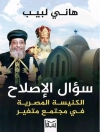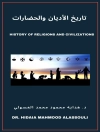In ‘Christianity, ‘ Annie Besant meticulously examines the origins, development, and practices of the Christian faith from both historical and philosophical perspectives. The book is characterized by Besant’s incisive literary style that combines rigorously researched analysis with evocative prose. She explores the intersections of Christianity with different religious traditions, highlighting its transformative influence on societal values and ethical frameworks. Written during a time of burgeoning religious inquiry in the late 19th and early 20th centuries, the work reflects the era’s intellectual currents, particularly the rise of Theosophy and the quest for a universal truth that transcends dogma. Annie Besant, a prominent Theosophist, women’s rights activist, and social reformer, was deeply influenced by her commitment to the search for spiritual truth and justice. Her diverse background, which included early adoption of socialist ideals and advocacy for education, informed her critical perspective on religion. Besant’s experience as a public intellectual and her struggle against dogmatic constraints shaped her desire to present an inclusive examination of Christianity, positioning it within wider cosmological and ethical debates. For readers seeking a nuanced understanding of Christianity’s foundational narratives and teachings, Besant’s work is an indispensable resource. It challenges prevailing dogmas and invites contemplation of spirituality’s role in society. ‘Christianity’ is not only a scholarly account but a call to explore the profound interconnectedness of faith, ethics, and humanity.
Об авторе
Annie Besant (1847–1933) was an influential British socialist, theosophist, women’s rights activist, writer and orator. She became renowned for her eloquent advocacy on a range of social and political issues, including workers’ rights, secularism, and women’s suffrage. Her intellectual journey led her from initial involvement in the National Secular Society to eventually becoming a leading figure in the Theosophical Society, which aimed to promote spiritual development and the study of comparative religion. Besant’s literary contributions reflect her multifaceted engagement with religious, philosophical, and social reform movements. In her book ‘Christianity’, Besant critiques the institutionalized religion of her time, calling for a reinterpretation of Christian teachings in line with theosophical principles. Her critical analysis exemplifies her broader literary style, characterized by a rational yet impassioned dissection of contemporary beliefs and a persuasive call for progressive thought. Besant’s works remain a testament to her enduring legacy as a pioneering thinker and advocate for social change at the turn of the 20th century.




